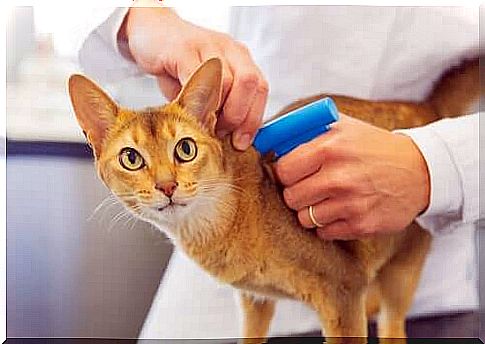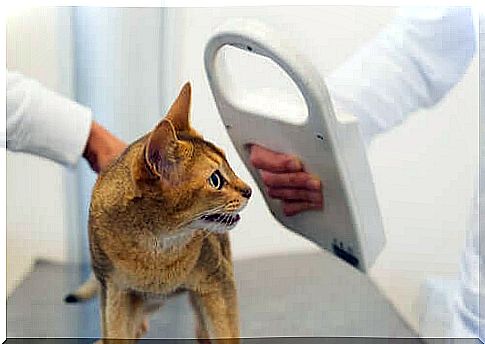Is The Microchip Mandatory For Cats?

The microchip for cats is not mandatory. However, it is highly advisable as it is the most effective means of tracing the animal in case of loss.
Furthermore, this device does not cause any discomfort to the cat and is extremely useful, as it contains all the basic and necessary information about the animal. An increasing number of people, in fact, decide to microchip their animals, even in other species of pets.
What is the microchip for cats?
It is an electronic element that resembles a very small capsule, similar in size to a grain of rice. In it you will find all the necessary information about the animal including vaccines, name, owner’s telephone and veterinarian. The microchip does not cause any kind of discomfort to the animal, which does not even notice its presence.
The capsule is inserted under the skin, almost always in the nape area. The animal will not feel severe pain, as inserting the microchip is similar to a vaccination. This is a quick and almost painless procedure.
In addition to this, it is placed only once in a lifetime and the cat is thus registered in the animal registry; the veterinarian will also be in possession of information relating to the animal.
It is of great use, especially for tracking down the animal if it escapes or gets lost. We would like to underline that it is very important to keep felines under control, animals famous for their agility and which tend to leave the house with relative ease.
This device allows to keep the animal, in this case the cat, well identified and protected. The best part is that it is a very economical procedure.

Is the application of the microchip in cats mandatory?
In many countries, the use of microchips in pets is mandatory. In Italy, unlike the dog, not in all Italian regions is there an obligation to affix the microchip to the cat. In other words, there is currently no law obliging people to equip their cats with the aforementioned capsule.
Despite the lack of obligation, as previously commented, it is advisable to insert the microchip. The advantages are numerous, moreover it is an economic practice and accessible to all.
Some people don’t microchipping their cats because they never leave the house. In addition to this, it is often taken for granted that if it were to get lost, the cat can adapt much more easily to life on the street than, for example, dogs.
Cats don’t adapt to street life
It is of fundamental importance to debunk this reason, as cats used to living at home face numerous difficulties if they get lost or run away. Added to this is the indirect impact they can generate on the local fauna during their adventures.
Domestic cats are generally found in poor condition. After all, and despite their excellent instincts, they are not used to having to hunt to survive or to fight with stray animals.
Many felines are found injured or victims of road accidents. This dispels the myth that cats adapt more easily than dogs when, for whatever reason, they get lost. The primary obligation of any owner is to protect the welfare of their pet.

Microchip and information update
It is essential to update the information of the microchip. Many cats can have the microchip, but it is useless if it is not registered in the animal registry and if the data is not updated. The owner’s name, telephone and address must also be updated.
Although the microchip for cats is not mandatory, it is highly recommended to apply it. The reason is simple: to facilitate identification and protect them. In case of removal or loss, counting on the microchip will be of great help.









